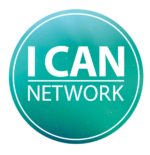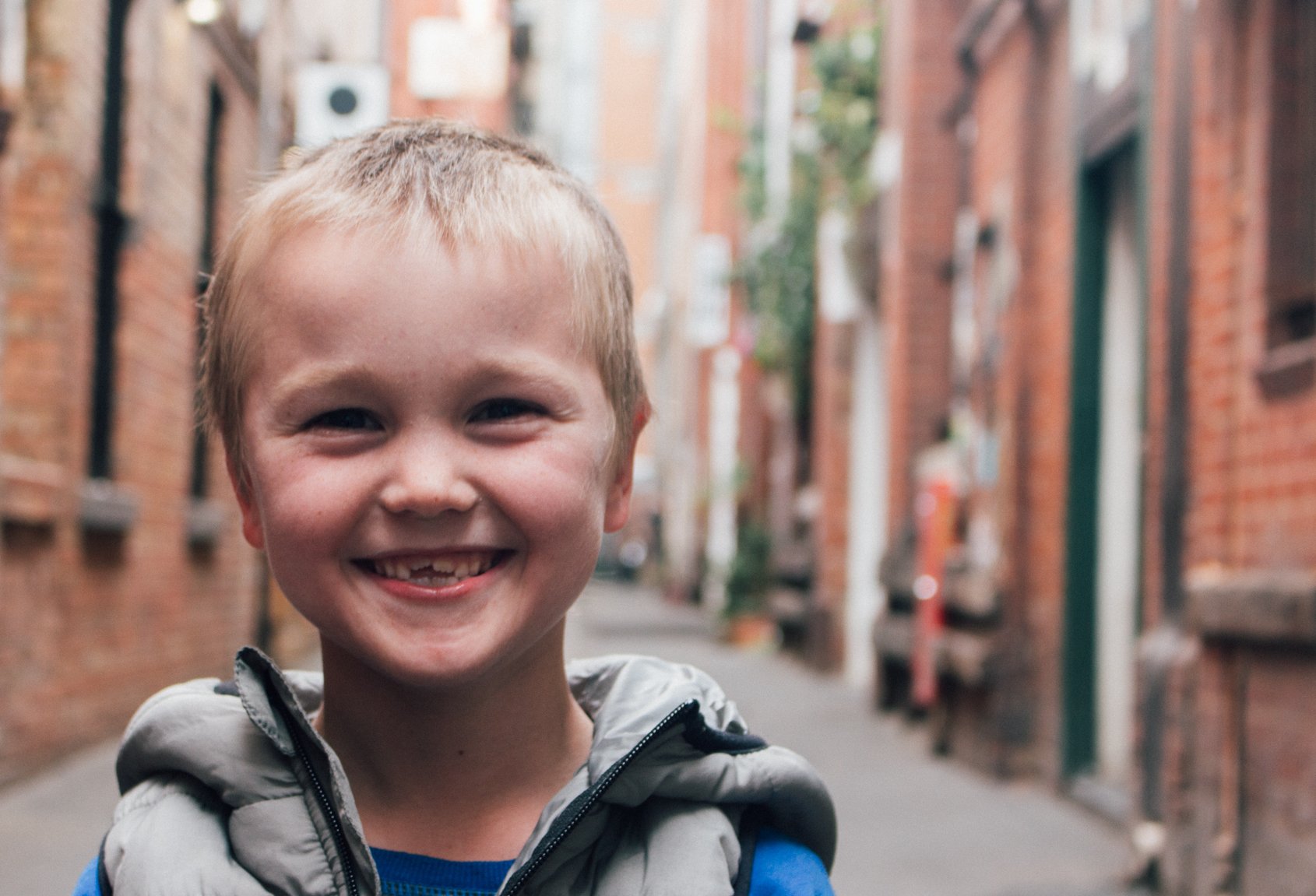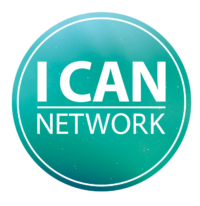HUMANS ON THE AUTISM SPECTRUM
“YOU ARE MORE CAPABLE THAN YOU THINK YOU ARE”
Max, Senior Mentor I CAN Network
2020
For the last five years, we have had the privilege of highlighting many Autistic voices, including young people who are new to our I CAN mentoring programs, those who have been with us for years, mentors, teachers and advocates.
In 2020, we are especially proud to have partnered with the National Disability Insurance Scheme to deliver Humans on the Autism Spectrum: School Leavers. From early April to mid-June, we showcased experiences, insights and advice from ten Autistic members of our team who are navigating post-school life, including TAFE, university, the workplace and community. Their stories contain messages which are relevant not only for younger Autistic peers but for anyone wanting to understand Autistic lived experience.

ayesha carson
“The only person who should say what I can or cannot do is me.” – Ayesha
Ayesha Carson embodies the I CAN spirit. She’s a former mentee who gained so much from the support and encouragement she received through I CAN that she was motivated to become a mentor herself.
In this video interview, Ayesha shares her experiences and advice on navigating post-school life, highlights the challenges of masking and interpreting unwritten social rules, and explains the importance of self-acceptance and embracing your differences. WATCH AYESHA’S INTERVIEW
More insights from Ayesha:
On the best part of high school: The best part of school was having a routine. And not only was I able to have a routine, I was able to do classes that I chose myself: hands-on activities like art, photography and cooking. At first when I left school, it was hard to adjust to not having the routine of going to school every day. That’s why I encourage people to start thinking about a post-school plan before they leave school.
On learning to say “I CAN”: School was not always easy for me, especially since I am also dyslexic, but I did have some wonderful teachers who encouraged me. I didn’t know it at the time, but I was already preparing for the I CAN Network back then. Whenever someone would tell me that I couldn’t do something, it made me want to show them, Yes, I CAN! The only person who should say what I can and cannot do is me.
On the value of Autistic mentors: My mentors showed me that it was okay to be different. They showed me that I had so many qualities to give to other people. They allowed me to be myself and want to help other people like myself. It makes me feel proud that I can have a positive influence on our mentees, and that drives a lot of my confidence to try new things.
On appreciating her own differences: At first, it was really hard for me to get my mind around the fact that I was not like other people. I wasn’t neurotypical. But meeting other people on the spectrum made me realise that my differences made me unique. They make me who I am and I am able to see the world in a different way.
On the importance of validating messages about Autism: When you hear negative things about Autism your whole life, you start to believe them. The sooner we can hear positive things about ourselves like “That’s okay that you’re different. That makes you awesome!” or “Wow, you totally looked at that in a different way!”, the sooner we will start to believe in ourselves.
Ayesha
TIM CHAN
I am excited to be part of the self-advocacy movement to drive Autism to a new level of relevance and inclusion.” – Tim
What a privilege it is to have Tim Chan as an Ambassador for I CAN Network. Tim has been a part of our I CAN family since our earliest days and continues to make his mark as an advocate.
In 2014, at age 18, he was the first non speaking Autistic to deliver a TEDx talk and last year, he released his autobiography, Back From The Brink. Tim also plays a meaningful role in several other Autism and disability-related organisations across Australia.
In this powerful video, Tim shares his journey from a high school student who battled years of exclusion and self-doubt to a university student who is embracing his strengths in an inclusive environment whilst growing in confidence as an advocate. WATCH TIM’S INTERVIEW
On the importance of meaningful support: Although it was hard to adapt initially to primary school, I was accepted by staff and students. With the support of a fantastic aide, I managed to participate in every class. In Grade 3, I learned to type with support and have relied on this as my preferred mode of communication as it caters best to my needs.
On his motivation to become an advocate: Because of my high school debacle, I wanted to do my best to become an Autism advocate and learn to empower others on the spectrum, especially those without speech. I am also keen to give back all the support and help I’ve received from exceptional people over the years.
On how he views Autism: Over the years, I have learned to see Autism not as a disorder but another way of being in the world. Although the effects of Autism on me can be debilitating, seeing the world with different eyes and in different ways more than compensates.
On embracing his strengths: In acknowledging that I function differently in mind and body, I am able to find the confidence and impetus to use my strengths towards connecting and engagement with the world…I can see things that people may miss because of my heightened sensory and other processing ability. I am good with details and working at putting things together in a big picture. From this unique perspective, I find that I can make contributions in my own ways.
On what he would tell his younger self: I would like to tell my younger self, don’t be too worried about what people think. Although it can be tough when people walk away without acknowledging you, it is important to be in touch with who you are. Don’t be ashamed of yourself, the parts of you that you wish never existed may give you some of the greatest moments of joy and satisfaction.
Tim.

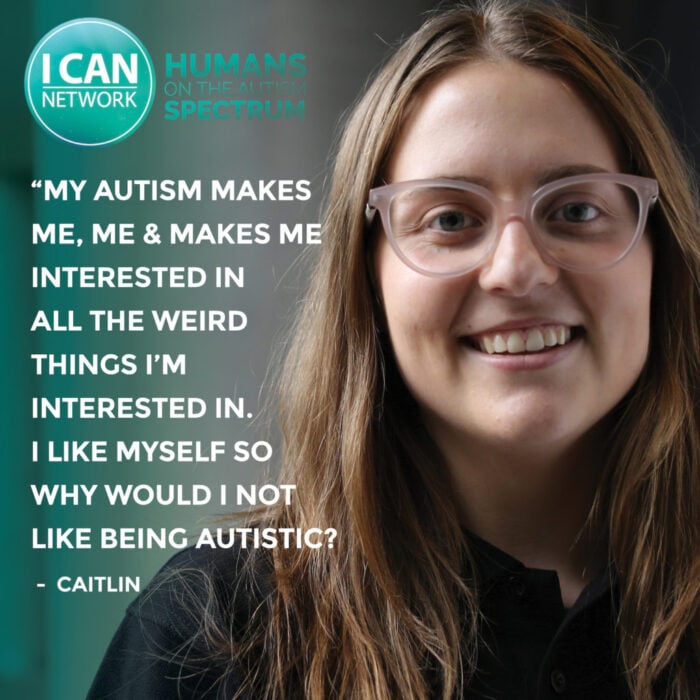
CAITLIN DOWNIE-KEMPSON
You can actually do the things that you want to do. The only person who limits you is yourself.”
Caitlin was one of our first high school mentees way back in 2014, a time when she didn’t believe in her own capabilities and didn’t have links to Autistic role models and peers. Now as an I CAN Mentor for the past five years she has helped many Autistic young people say “I CAN”.
In this video interview, Caitlin shares her journey from a struggling student in high school to someone who made it to university as a mature age student, shares what inspired her to become a mentor and reveals why she’s so proud to be Autistic. Click on the image below to watch Caitlin’s video. WATCH CAITLIN’S INTERVIEW
More insights from Caitlin:
On the importance of Autistic mentors: I think it’s important for Autistic young people to have Autistic mentors because when you make a connection and build a rapport with someone who has similar experiences, it makes you feel less alone. Once I started meeting Autistic role models and peers, it made me feel like I was part of a community and that helped me accept myself more and more. A lot of Autistic people struggle with finding their place in society and having Autistic mentors can help you feel like you belong.
On her best discovery at university: What I’ve discovered at university is that I love to learn. I’ve learnt so many enlightening things through my subjects. When I am exposed to something new or hear something that’s fresh, it makes me excited and happy. My brain starts buzzing. Every time I learn something new, I grow more and more. I used to hate studying but now I really love it!
On facing challenges at university: I’ve always struggled with literacy and writing. I came to university a bit behind, so I had to do some extra programs at uni to build my skills and confidence. I thought I’d get terrible scores, but when I’m writing about something I’m interested in and when I have real understanding and knowledge of a topic, it turns out I can actually be a very good writer. Maybe it’s my Autism!
On self-proclaimed Autism experts: One of the things that girls and women often face is people questioning our Autism diagnosis. Last year, a much older uni classmate told me that his partner’s cousin was on the spectrum, implying that because of this connection, he really “understood Autism”. When I mentioned that I was on the spectrum, his response was, “Really? Are you sure?!”, and then he went on to explain how “these things” like Autism and ADHD are over-diagnosed. I know it’s not my duty to educate every ignorant person, but I did enjoy setting him straight!
On her post-uni career aspirations: I have a very millennial answer for what I want to do with my degree: I want to help people. I’ve always had a deep passion for supporting others and I love working with young people. I’d love to become some sort of vessel to help young people achieve their dreams and learn how to advocate for themselves.
Caitlin
LACHLAN PEACH
“Through I CAN and being a mentee, I got a lot more courageous and a lot more willing to do stuff I never thought I would even consider engaging in.” – Lachlan
During our South West Victoria team’s 2017 video rendition of “You Can’t Ask That!”, Lachlan Peach delivered this classic insight: ‘No, I don’t think I’ll grow out of my Autism. Autism is a part of me. If I’m gonna grow, it’s gonna grow with me.’ Lachlan’s journey from I CAN mentee to mentor has been marked by immense growth — in his confidence, his own Autistic identity and his ability to encourage younger Autistics with his positive outlook and chilled out humour.
In this brief video interview, Lachlan explains how Autistic peers and role models have helped him develop confidence and pride, offers advice for Autistic young people who are contemplating post-school life and shares why he aspires to go into teaching one day. WATCH LACHLAN’S INTERVIEW
On his first I CAN Network experience: Being with other Autistic peers gave me the chance to be open and not have any fear about being judged. Everyone could relate in some way to things I had gone through. We could all just be ourselves and have great fun. There was no shame and it was just awesome.
On the importance of Autistic community: It’s important to have contact with other Autistics for the simple reason that you don’t have to worry about being misunderstood. If you trip up and say something silly, you don’t have to worry about the instant backlash or looking bad. Even if people disagree with you, there’s always a feeling of support.
On his message to the world: Never doubt us Autistics. We will always surprise you. You can assume what we’re going to do, but we’ll come up with something different and better to beat those expectations.
Lachlan.


KITARNA – GOULBURN MURRAY
“You can do this. You are awesome who you are.”
Kitarna, a 17-year-old mentee in the Goulburn Murray (VIC) region, is changing the way her peers and community view Autism. Surrounded by negative narratives for years, she has rejected the naysayers and instead has embraced herself and those around her with a positive energy which inspires. A defining moment of I CAN’s 2019 Regional Awetism Expo was when Kitarna took to the stage to share her personal I CAN story with authenticity and passion. At the end, a student from another school called out in admiration, “When are you running for Prime Minister?!”
In this brief video interview, Kitarna shares how she developed self-acceptance amid such negative messages about Autism, pays tribute to the teacher who made such a difference in her outlook and offers advice to other Autistic young people who also want to say, “Yes, I CAN.” WATCH KITARNA’S INTERVIEW
More insights from Kitarna:
On how she started to believe in herself: Throughout primary school, there were numerous people who made me feel like I was worthless and that I was just a burden on the system. Unfortunately, when you hear it enough, you start to believe it. My view changed when I opened my eyes and started to look around. We have a teacher at our school who is on the Autism spectrum and she is amazing. I’ve also learnt more about other pretty successful people who are Autistic and I thought “Why not have a go?” This view has opened up so many opportunities for me.
On how to tune out negativity: Don’t listen to those people who don’t believe in you. I’ve grown up around such negative people, and if I had actually believed them, I would be a totally different person. I would have believed that I wasn’t going to have a chance to be anyone. Instead, I’m a fairly confident, successful student.
On her biggest supporters: By far, my greatest support are my parents. My father understands me in a really unique way that not many other people can. My mother goes the extra million miles — not just the extra mile but the extra million miles — for me. She reads books, watches documentaries, questions so many specialists, people on the spectrum and other parents of kids on the spectrum to understand. Having that love and affection makes me feel safe and secure, like I have a net in case I fall off that tight rope.
On the teacher who has made the biggest difference: She is always so loving, caring and kind. She can always understand whatever predicament you’re in and she doesn’t judge. Having her on our side has been such a massive boost. It’s a major thing for us [Autistic students] to have someone who celebrates us.
Kitarna
